Alexander Shirkov
AutoGluon-TimeSeries: AutoML for Probabilistic Time Series Forecasting
Aug 10, 2023
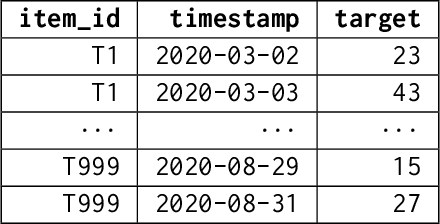
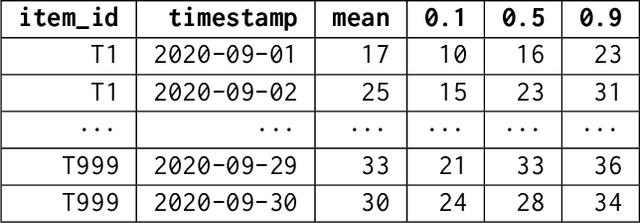
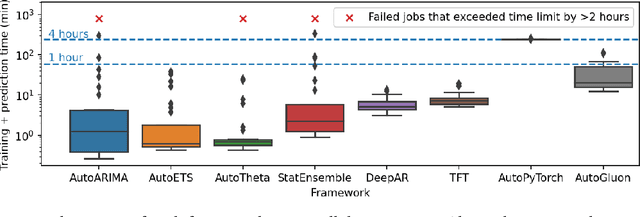
Abstract:We introduce AutoGluon-TimeSeries - an open-source AutoML library for probabilistic time series forecasting. Focused on ease of use and robustness, AutoGluon-TimeSeries enables users to generate accurate point and quantile forecasts with just 3 lines of Python code. Built on the design philosophy of AutoGluon, AutoGluon-TimeSeries leverages ensembles of diverse forecasting models to deliver high accuracy within a short training time. AutoGluon-TimeSeries combines both conventional statistical models, machine-learning based forecasting approaches, and ensembling techniques. In our evaluation on 29 benchmark datasets, AutoGluon-TimeSeries demonstrates strong empirical performance, outperforming a range of forecasting methods in terms of both point and quantile forecast accuracy, and often even improving upon the best-in-hindsight combination of prior methods.
AutoGluon-Tabular: Robust and Accurate AutoML for Structured Data
Mar 13, 2020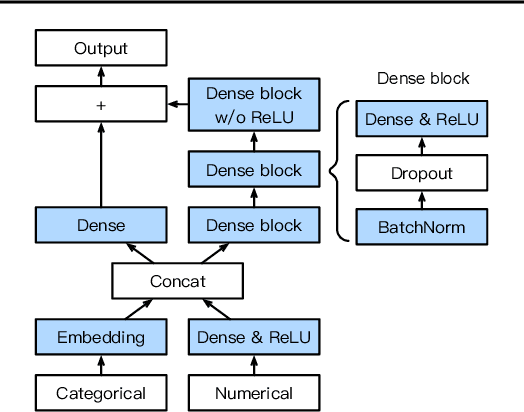
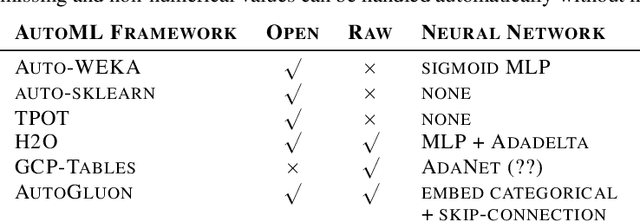
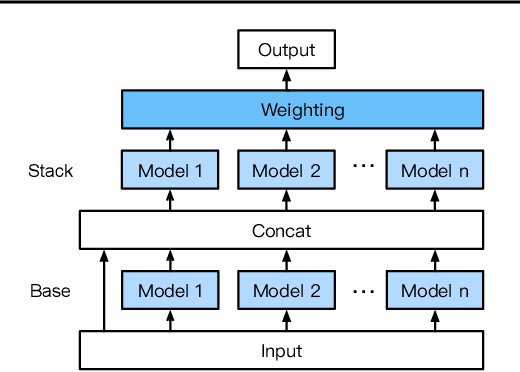

Abstract:We introduce AutoGluon-Tabular, an open-source AutoML framework that requires only a single line of Python to train highly accurate machine learning models on an unprocessed tabular dataset such as a CSV file. Unlike existing AutoML frameworks that primarily focus on model/hyperparameter selection, AutoGluon-Tabular succeeds by ensembling multiple models and stacking them in multiple layers. Experiments reveal that our multi-layer combination of many models offers better use of allocated training time than seeking out the best. A second contribution is an extensive evaluation of public and commercial AutoML platforms including TPOT, H2O, AutoWEKA, auto-sklearn, AutoGluon, and Google AutoML Tables. Tests on a suite of 50 classification and regression tasks from Kaggle and the OpenML AutoML Benchmark reveal that AutoGluon is faster, more robust, and much more accurate. We find that AutoGluon often even outperforms the best-in-hindsight combination of all of its competitors. In two popular Kaggle competitions, AutoGluon beat 99% of the participating data scientists after merely 4h of training on the raw data.
 Add to Chrome
Add to Chrome Add to Firefox
Add to Firefox Add to Edge
Add to Edge